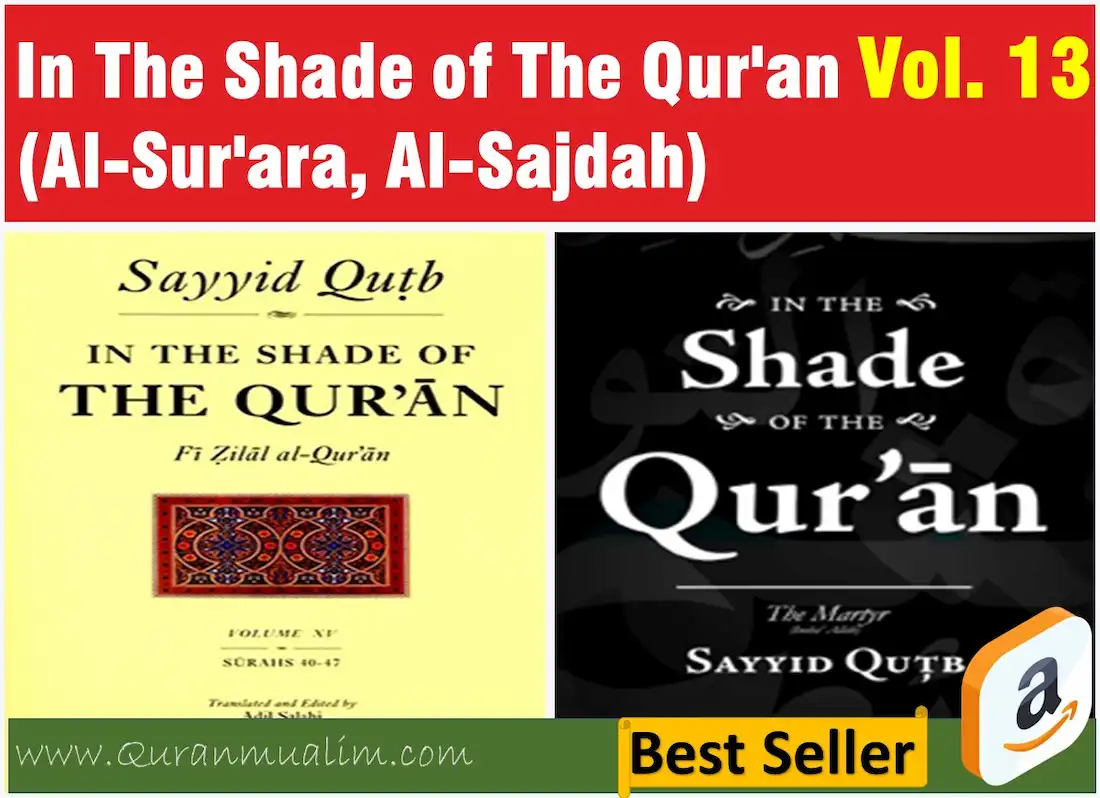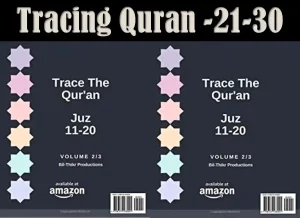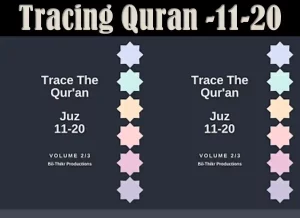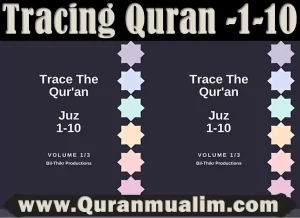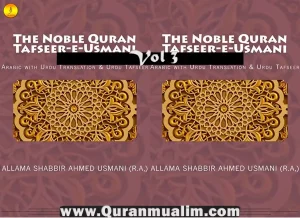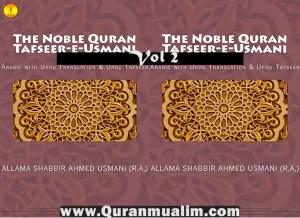In The Shade of The Qur’an Vol.13 (Surah Ash-Shu’ara , SURAH Al-Sajdah) (Surah 23-32)
BySayyid Qutb
Translator: Adil Slahi
Paperback 504 pages
Publisher: The Islamic Foundation, Leicester UK
Al-Shu’ara Al-Naml, Al-Qasas, Al-Ankabut, Al-Rum, Luqman & Al- Sajdah (26-32)
Since its 1400 year anniversary, the Qur’an is a guide and inspiration book, a reference point and a rich source for social and moral dynamism. It has also been the foundation of hundreds of millions of believers around the globe who consider it the immutable word and truth of God. It seems like every generation is attempting to understand the Qur’an’s meanings and gain a deeper understanding of its universal message from a modern perspective.
Suggested Read: Quran French, The Quran: English Translation, Textual Criticism and Qur’an Manuscripts
In The Shade of The Qur’an Vol.13 (Surah Ash-Shu’ara , SURAH Al-Sajdah)has more to it than just another commentary. However, it’s not too far-reaching or extreme to be considered a new interpretation. It’s a sincere, honest, and sober examination of man’s current achievements and problems in light of the Qur’an’s message. It is an attempt to vigorously explore its rich wisdom and expand its invaluable guidance in the interest of a more ‘sophisticated’ but highly perplexed society.
This work, Sayyid Qutb’s most extensive and profound, covers the entire Qur’an text. It was completed over 15 years. Most of it was spent in Egyptian prisons during the 1950s and 60s. It contains Sayyid Qutb’s insights, highly regarded intellectual vigor and widely-acclaimed literary prowess.
The outstanding contribution of Islamic thought and scholarship to In The Shade Of The Qur’an is widely recognized. Students and scholars around the globe, as well as current Islamic revivalist movements, owe it a lot. It is now available in English and will continue to inspire and educate millions more. It will be an indispensable reference work for understanding contemporary Islamic thought.
Suggested Read : Can Muslims Have Dogs?, Can Muslims Have Dogs?, Allah is The Best Planner
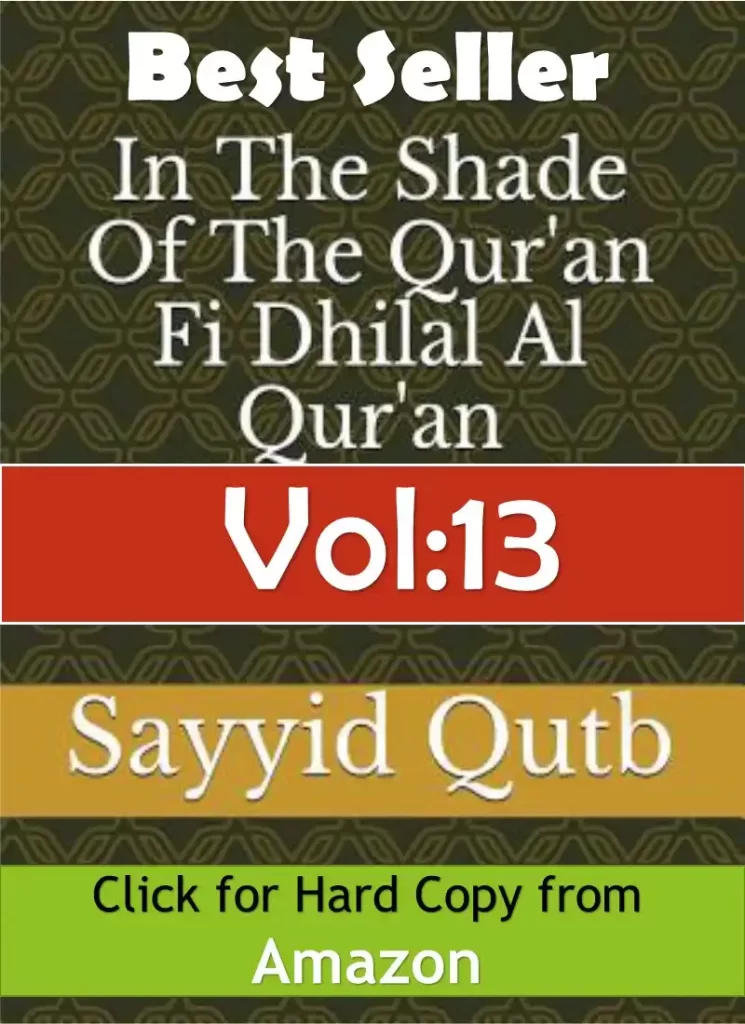
In The Shade of The Qur’an Vol.13 (Surah Ash-Shu’ara , SURAH Al-Sajdah)
Syed Qutb was true to his teachings and died for the principles he stood by. A military court founded by Nasser sentenced him to death and hanged him. He wrote his jihad against all the jahiliyya he saw around him.
1906 – Born in Musha, northern Egypt.
1930’s and 1940s: Qutb starts working as an inspector of schools for Egypt’s Ministry of Education. Qutb also attempts to become a writer. He publishes a few books, but not much success.
1948: Receives a master’s from the Colorado State College of Education and travels to the USA to study the educational system.
1951: Qutb returns home to Egypt and joins the Muslim Brotherhood. (Ikhwan ul Muslim).
1952: The first volume of his commentary In the Shade of the Qur’an is published (Fi Zilal al-Qur’an). This work would have 29 additional volumes.
1954: He is taken into custody and sentenced to a long time imprisonment with many others members of the Ikhwan.
1964: Qutb is freed after ten years imprisonment.
1965: Arrest again for allegedly being part of the plot to assassinate President Gamal Abdu-l-Nasser.
1966 August 29: Executed following a 1965 plot. May Allah Bless His Soul
Suggested Read: Is Cutting Your Hair A Sin? , Black Stone Kaaba (Hajr-e-Aswad), Allahumma Innaka Afuwwun Hadith
Al-Sur’ara
In The Shade of The Qur’an Vol.13 (Surah Ash-Shu’ara , SURAH Al-Sajdah) – Surah is the 26 surah of the Qur’an. It contains 227 verses ( Ayat), which are then divided into 11 sections. It was revealed during the middle Makkah period (em>ayat/em>) six to seven years prior to the migration ( hijrah to Madinah). It was discovered when the light of Islam and Prophet Muhammad’s prophethood were interacting with the environment of pagan and polytheist Makkah, which was testing Makkans in their most arrogant state (Yusuf Ali 1990). The surah was named after the keyword Al-shu’ara (the poets) in verse 228.
The surah reveals that the conflict between truth ( q ) and falsehood on Earth is a constant theme. It is a law of terrestrial existence. It can take many forms and does not spare any segment of human life. These segments include political leadership and authority as well as economy and trade, religion and creed, morality, social structure and entertainment. Here are some examples of conflicts where prominent prophets were featured: Musa (Moses), Ibrahim, Nuh (Noah), Hud [Eber or Heber], Salih (Shelakh), Lut (“Lot”) and Shu’ayb (Jethro).
Each prophet’s story represents a different aspect of the constant and pervasive conflict between good and bad, as well as between truth and belief and their respective protagonists. These stories, along with their lessons, form a mosaic of cultural and civilisational disorders that must be addressed.
They further illustrate the authentic meaning and significance of life, culture and civilisation, in addition to the types and magnitude of the challenges and obstacles that lie ahead of every bona fide human development and society as well as civilisation-building processes. The surah is thus a microcosm for the entire spectacle of life, with all its ups and downs. Its message, however, is a microcosm for the cosmic truth.
Suggested Read: The Clear Quran, El Coran and The Essential Book of Quranic Words
The truth is always in victory
Another lesson that can be learned from the surah content is that all conflicts between falsehood and its followers and the truth and its own people end in vain. In all cases, the truth and its faithful followers win and prevail. Falsehood and unbelief are crushed and made to perish.
Another principle of life is that unbelief and falsehood cannot ever be defeated by the truth. While they may win some initial victories, the ultimate victory will be won by truth and its camp. While the truth might lose some battles in war, it will win all of them.
The Qur’an is the best book or epistemological source that encourages and motivates. It reiterates the fact that polytheists, nonbelievers and corruptors as well as oppressors and other villains will not succeed if they are against Almighty God. The believers and doers who are good, God-fearing and righteous will succeed in the end because they have aligned with the natural and primordial order and have God on their side.
Truth is the standard and rule. Falsehood and unbelief, on the other hand, are aberrations and anomalies. According to the Qur’an, “And say: “The truth (now) has arrived, and falsehood has perished: because falsehood (by its nature), is bound to perish” (al Isra’, 81). Also, “Say: The truth has arrived and falsehood does not create nor restore anything (or falsehood will vanish and never return)” (Saba’, 49).
According to Surah al -Shu’ara, Pharaoh strongly rejected the teachings and opinions of Musa. Pharaoh’s magicians who were brought forward to support Pharaoh, and make Musa triumph over Musa, eventually bowed to truth (verses 10-68).
Ibrahim’s disobedient followers did not gain anything from resisting the truth he preached (verses 70-103). Their rejection of the prophet’s message also led to Nuh’s people’s death (verses 105-122).
Hud (verses 120-140) as well as Salih (verses 140-159) warned their respective peoples about their widespread mischief and against relying on their material strength, including the built environment, to perpetrate and propagate the latter.
Both the good guys were defeated in the end. Lut (verses 160-175) had to endure the people’s terrible delinquencies and Shu’ayb’s corruption, disobedience, and fraudulent dealings (verses 171-691). Although their teachings were strongly repudiated by the people, wrongdoers were ultimately destroyed (Yusuf Ali 1990).
The most satisfying endings are the ones that end in happy
Happily endings are the most satisfying and sought-after. It doesn’t matter how hard or long it takes to achieve them. This is what people are looking for. Happiness is the end of all problems, sadness, and despair.
An unhappy ending, in the same way, is neutralizing and eliminating all previous comforts, pleasures, and pleasures. It is like there were no other endings when a happy one arrives. It is the same with an unhappy ending.
Accordingly, the Prophet (pbuh), advised Muslims to keep in mind “the destroyer, i.e. death”, and to prepare and act accordingly (Sunan Ibn Majah).
This message was sent to the disbelievers of Prophet Muhammad (pbuh), and it is the last revealed message: The Qur’an. It states that truth, in accordance with history and established laws, will once again triumph over the lies. It will be impossible to suppress it or extinguish its light, regardless of how disobedient they are. Their final days, especially in this life after death, will be just as painful and as chastening than their previous ones.
This is because the Qur’an, the Creator’s revealed Word of God and Guidance to humanity, is the Qur’an: “Verily this revelation is from the Lord (and Sustainer),” he said. It brought down the Spirit (trustworthy Jibril and Gabriel) that guided humanity to the truth.
Maududi says that the mentality of the disbeliever is the same across the centuries. They had similar arguments, objections, excuses, and subterfuges. The fates they met were also the same. The prophets of every age shared the same teachings.
Their personal characters, reasoning, and arguments against the opponents were identical. They were all blessed with the same mercy by Almighty God. These patterns of conduct and behaviour are documented in history. The disbelievers could see which patterns they followed and Prophet Muhammad (pbuh).
In verses 224-227, the Qur’an rejects any notion of it as poetry. The truth contained in the Qur’an, as well as the virtues and qualities of its personnel, including the Prophet (pbuh), and its impact on society, cannot be equated to vain poetry.
The Qur’an is not brought down by the devils (verses 220-212). It is a serious, divine message that has serious eternal consequences. The Qur’an is the primary reason for the success of the Prophet and his followers. The failure of its opponents, on the contrary, is due their rejection of it and adoption of inept ideological alternatives.
Suggested Read: Online Quran Teacher For Kids and Color Coded Quran , Can Muslim Men Wear Gold?
In The Shade of The Qur’an Vol.13 (Surah Ash-Shu’ara , SURAH Al-Sajdah)
Signs (Ayat ) permeate every creation
The surah highlights the fact that many signs ( Ayat ) have been given to support monotheistic truth. This is a sign which has been repeatedly and stubbornly rejected by many nations. They were sent down or created and all aspects of creation, including human history and life, have been imbued.
These signs are evidence of the greatness, benevolence and presence of the Creator and Lord over the universe. They are easy to find and reachable. These documents can be read and understood with passion and understanding, and then acted upon by man to fulfill his honorable vicegerency ( Khilfah).
But man’s inborn impulses and weaknesses, which he is unable to overcome and deal with, and his propensity to self-deception and heedlessness often win out. It sustains him in spiritual blindness and illiteracy.
The surah talks about the signs ( alat 2), the signs of nature (verse 8), God’s extraordinary signs (verse 4), God’s signs from heaven (verse 5), God’s signs to Prophet Musa (1st verse 15), God’s signs to Prophet Musa (15), God’s signs to Prophet Musa (15), and signs in the lives of the Children of Israel’s learned scholars who knew that the Qur’an was true (verse 197).
Al Sha’ara’ is, as it should be said, the surah sign ( Ayat). It has 14 references to signs. Twelve are the singular ( Ayah), and two are the plural ( Ayat). Its main themes and repeated references to signs serve as antidotes to certain people’s stubborn denials of the obvious and compelling truth. ***
Product details – In The Shade of The Qur’an Vol.13 (Surah Ash-Shu’ara , SURAH Al-Sajdah)
- Publisher : The Islamic Foundation
- Language : English
- Paperback : 504 pages
- ISBN-10 : 0860375552
- ISBN-13 : 978-0860375555
- Weight : 1.68 pounds
- Dimensions : 6 x 1.75 x 9.5 inches
READ ALSO
| The Holy Quran | El Coran |
| Mushaf al-Madinah | Quran French |
| The Clear Quran | Tajweed Rules |
| Quran Kareem | The Study Quran |
| The 99 Names of Allah | Laylat-ul-Qadr |


